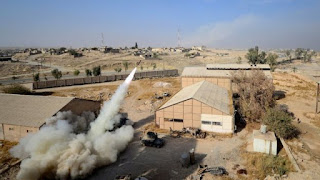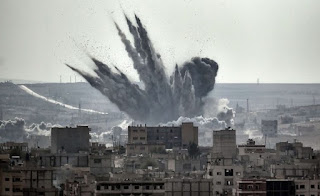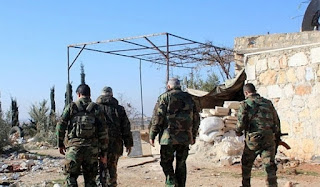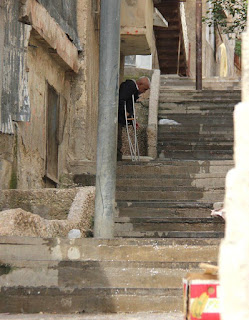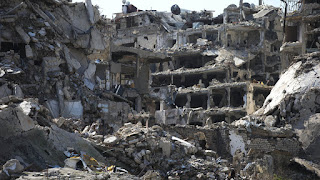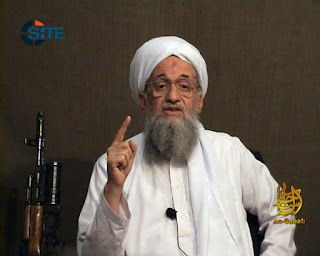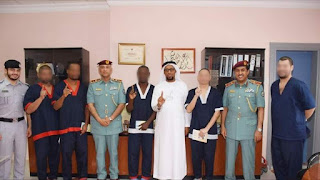
have asked this earlier but did not get a satisfactory answer. My question is about Taraweeh Prayer in Ramadan. You have answered to me in a question before that Taraweeh should not be more that 11 rakat. It has been authentically reported that Muhammad SAAW prayed Taraweeh 3 times in Ramadan and it consisted 11 Rakah. Also the book by Shaykh Naasir-ud-Din Al-Albani (May Allah have mercy on him)، Qiyam and Taraweeh states that Taraweeh should be 11 Rakah. The sunnah is 11 Rakat. Now the question which is confusing and often becomes a discussion among brothers is whether the number of Rakat in Taraweeh should be 11 Rakat or 20 Rakat. Some people during Ramadan go to masjids where the Imam does 11 Rakats and other go to Masjids where the Imam does 20 Rakats. In most of the Hanafi Masjids around the US the Imam does 20 Rakat. The point to note is whether 20 Rakat or 11 Rakat the Imam completes the entire Qurran during Ramadan. The people are very sentitive about this issue and this issue becomes a topic in gathering in the United States. The people who pray 20 Rakat blame the other groug praying 11 as being wrong and the group praying 11 Rakat blames the group praying 20 as wrong. This is a big fitnah in the US. This leads to disunity. People always quote that in Prophets Mosque the Imam prays 20 Rakats and also in Masjid-ul-Haraam in Mecca the Imam prays 20 Rakat. Also those who during Ramadan go to Saudi Arabia for Umrah say that the Imam prays 20 Rakat. This is a confusion.
Please answer and explain to me the following issues:
1. The sunnah is to pray 11 Rakat then why is Prophets mosque in Medina and also in Masdid-ul-Haram the imam leads the people to pray 20 Rakat? Why? Why is this different from the sunnah?
2. Why are the number of Rakat of Taraweeh in Prophets mosque and Masjid-ul-Haraam 20 Rakat? Please explain to us so.
Praise be to Allaah.
We do not think that the Muslims should be so sensitive with regard to issues that are the matter of scholarly differences or make them the cause of division and fitnah among the Muslims.
Shaykh Ibn ‘Uthaymeen (may Allaah have mercy on him) said, when speaking about the matter of one who prays ten rak’ahs with the imam, then sits down and waits for Witr and does not complete the Taraaweeh prayers with the imam:
It grieves us deeply that we find in the Muslim ummah a group which differs concerning matters in which differences of opinion are acceptable, and they take these differences as a means to cause division. Differences within the ummah existed at the time of the Sahaabah, yet they remained united. The youth in particular and to all those who are committed to Islam must remain united, because they have enemies who are laying in wait.
Al-Sharh al-Mumti’, 4/225
Two groups have gone to extremes with regard to this matter. The first group denounced everyone who prays more than eleven rak’ahs and said that doing so was bid’ah. The second group denounced those who do only eleven rak’ahs and said that they are going against scholarly consensus (ijmaa’).
Let us listen to what Shaykh Ibn ‘Uthaymeen (may Allaah have mercy on him) said:
Here we say that we should not go to extremes or be negligent. Some people go to extremes in adhering to the number mentioned in the Sunnah, and say that it is not permissible to do more than the number mentioned in the Sunnah, and they aggressively denounce those who do more than that, saying that they are sinners.
This is undoubtedly wrong. How can they be sinners, when the Prophet SAWS (peace and blessings of Allaah be upon him), upon being asked about night prayers, said that they are to be done two by two, and he did not specify any particular number? Of course the one who asked him about the night prayer did not know the number, because if he did not know how to do it, it is even more likely that he did not know the number. And he was not one of those who served the Prophet (peace and blessings of Allaah be upon him) so that we might say that he knew what happened inside his house. Since the Prophet (peace and blessings of Allaah be upon him) told him how to do it but did not say how many times, it may be understood that the matter is broad in scope, and that a person may pray one hundred rak’ahs then pray Witr with one rak’ah.
With regard to the words of the Prophet (peace and blessings of Allaah be upon him), “Pray as you have seen me praying”, this does not apply in absolute terms even for these people. Hence they do not say that a person should pray Witr with five rak’ahs sometimes and with seven rak’ahs sometimes and with nine rak’ahs sometimes. If we understand it in absolute terms, then we would have to pray Witr with five rak’ahs sometimes and with seven rak’ahs sometimes and with nine rak’ahs sometimes. But what is meant by the hadeeth is pray as you have seen me praying with regard to how to pray not how many rak’ahs, unless there is a text to state what the number is.
Whatever the case, a person should not be strict with people with regard to a matter that is broad in scope. We have even seen some brothers who are strict on this matter accusing the imams who pray more than eleven rak’ahs of following bid’ah, and they leave the mosque, thus missing out on the reward of which the Messenger of Allaah (peace and blessings of Allaah be upon him) said: “Whoever stands with the imam until he finishes (the prayer), the reward of qiyaam al-layl will be recorded for him.” (Narrated by al-Tirmidhi, 806; classed as saheeh by al-Albaani in Saheeh al-Tirmidhi, 646). Some of them even sit down after completing ten rak’ahs, thus breaking up the rows of worshippers by sitting there, and sometimes they start talking and disturb the people who are praying.
We have no doubt that their intentions are good and they are doing their best to come to the right conclusion, but that does not mean that they are correct.
The other group does the opposite. They sternly denounce those who pray only eleven rak’ahs and say that they have gone against scholarly consensus. Allaah says (interpretation of the meaning):
“And whoever contradicts and opposes the Messenger (Muhammad) after the right path has been shown clearly to him, and follows other than the believers’ way, We shall keep him in the path he has chosen, and burn him in Hell — what an evil destination!”
[al-Nisa’ 4:115]
All the generations who came before you only knew the number as twenty-three rak’ahs, and they denounce anyone who says anything different.
Al-Sharh al-Mumti’, 4/73-75
With regard to the evidence quoted by those who say that it is not permissible to do more than eight rak’ahs in Taraaweeh, they quote the hadeeth of Abu Salamah ibn ‘Abd al-Rahmaan, who asked ‘Aa’ishah (may Allaah be pleased with her), “How did the Messenger of Allaah (peace and blessings of Allaah be upon him) pray during Ramadaan?” She said: “He did not pray more than eleven rak’ahs in Ramadaan or at other times. He would pray four, and do not ask how beautiful and long they were, then he would pray four, and do not ask how beautiful and long they were, then he would pray three. I said, ‘O Messenger of Allaah, will you sleep before you pray Witr?’ He said, ‘O ‘Aa’ishah, my eyes sleep but my heart does not.’”
Narrated by al-Bukhaari, 1909; Muslim, 738
They said: This hadeeth indicates that the Messenger of Allaah was consistent in his prayers at night in Ramadaan and at other times.
The scholars refuted this use of the hadeeth as evidence by saying that this is what the Messenger of Allaah (peace and blessings of Allaah be upon him) did, but the fact that he did something does not imply that it is obligatory.
The evidence that there is no set number for prayers at night – which include Taraaweeh – is the hadeeth of Ibn ‘Umar according to which a man asked the Messenger of Allaah (peace and blessings of Allaah be upon him) about prayer at night. The Prophet (peace and blessings of Allaah be upon him) said: “Prayers at night are to be offered two by two (two rak’ahs at a time). If any of you fears that the time of dawn is approaching then let him pray one rak’ah as Witr.”
(Narrated by al-Bukhaari, 846; Muslim, 749)
If we look at what the scholars of the prominent schools of thought said, you will clearly see that this matter is broad in scope and that there is nothing wrong with doing more than eleven rak’ahs.
Al-Sarkhasi, who is one of the imams of the Hanafi school, said:
It is twenty rak’ahs, apart from Witr, in our view.
Al-Mabsoot, 2/145
Ibn Qudaamah said:
The favoured view according to Abu ‘Abd-Allaah (i.e., Imam Ahmad, may Allaah have mercy on him), is that it is twenty rak’ahs. This was the view of al-Thawri, Abu Hanfeefah and al-Shaafa’i. Maalik said it is thirty-six.
Al-Mughni, 1/457
Al-Nawawi said:
Taraaweeh prayer is Sunnah according to scholarly consensus. Our view is that it is twenty rak’ahs with ten tasleems, and it is permissible to pray it individually or in congregation.
Al-Majmoo’, 4/31
These are the views of the four imams concerning the number of rak’ahs of Taraaweeh prayer. All of them said something more than eleven rak’ahs. Perhaps the reasons why they said something more than eleven rak’ahs include the following:
1- They thought that the hadeeth of ‘Aa’ishah did not mean that this was the specific number.
2- A greater number was narrated from many of the salaf.
See al-Mughni, 2/604; al-Majmoo’, 4/32
3- The Prophet (peace and blessings of Allaah be upon him) used to pray eleven rak’ahs and make them very lengthy, so much so that it used to take him most of the night. Indeed, one night in which the Prophet (peace and blessings of Allaah be upon him) led his companions in praying Taraaweeh, he did not end his prayer until just before dawn, and the Sahaabah feared that they would miss suhoor. The Sahaabah (may Allaah be pleased with them) loved to pray behind the Prophet (peace and blessings of Allaah be upon him) and they did not feel that it was too long. The scholars thought that if the imam made the prayer so long, this would be too difficult for the members of the congregation and that might put them off. So they thought that the imam should make the recitation shorter and increase the number of rak’ahs.
The point is that the one who prays eleven rak’ahs in the manner narrated from the Prophet (peace and blessings of Allaah be upon him) is doing well and is following the Sunnah. Whoever makes the recitation shorter and increases the number of rak’ahs is also doing well. A person who does either of these two things is not to be denounced. Shaykh al-Islam Ibn Taymiyah said:
If a person prays Taraaweeh according to the madhhabs of Abu Haneefah, al-Shaafa’i and Ahmad, with twenty rak’ahs, or according to the madhhab of Maalik, with thirty-six rak’ahs, or with thirteen or eleven rak’ahs, he has done well, as Imam Ahmad said, because there is nothing to specify the number. So the greater or lesser number of rak’ahs depends on how long or short the qiyaam (standing in the prayer) is.
Al-Ikhtiyaaraat, p. 64
Al-Suyooti said:
What is narrated in the saheeh and hasan ahaadeeth is the command to observe night prayers during Ramadaan, which is encouraged without specifying a particular number. It is not proven that the Prophet (peace and blessings of Allaah be upon him) prayed twenty rak’ahs of Taraaweeh, rather that he prayed at night, with an unspecified number of rak’ahs. Then he delayed it on the fourth night lest it become obligatory for them and they might not be able to do it. Ibn Hajar al-Haythami said: There is no saheeh report that the Prophet (peace and blessings of Allaah be upon him) prayed twenty rak’ahs of Taraaweeh. The narration which suggests that he “used to pray twenty rak’ahs” is extremely weak (da’eef).
Al-Mawsoo’ah al-Fiqhiyyah, 27/142-145
So you should not be surprised that people pray Taraaweeh as twenty rak’ahs. There have been generation after generation of those imams (who used to pray twenty rak’ahs), and all of them are good.
And Allaah knows best.
Source : https://islamqa.info/en/9036



